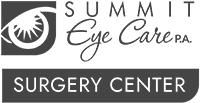RLE Surgery - LASIK Alternative
We offer two advanced methods for helping you see clearly once again: ICL and RLE surgery. Let’s compare and contrast RLE to other ways of healing one's vision.

RLE (Refractive Lens Exchange)
A RLE procedure treats all visual issues, including astigmatism, near-sightedness, far-sightedness, and presbyopia. Simplified, it replaces the natural lens in your eye with an artificial ocular lens that allows you to see a full range of vision.
Who should consider this option?
ICL is a great alternative to LASIK eye surgery in people with nearsightedness. ICL offers a permanent solution to vision issues.
Suitable for those who are:
Over 45 years old
Seeking improved vision
Wanting an alternative to glasses
This permanent eye-care solution will last a lifetime.
Possible benefits:
Vivid vision
Brighter colors
Enjoying more of life’s beauty
That last perk is one we never tire of hearing from our RLE patients. Because vibrant nature deserves to be taken in regardless of your age!
Recover may occur in as little as a few days. Mild discomfort or itchiness are typical post-procedure occurrences, but don’t expect any pain during the healing process.
How It Differs From LASIK
While LASIK remains a safe and reliable vision corrective surgery, when comparing RLE vs. LASIK for patients over 45, RLE comes out as the best option.
As we age, our eyesight deteriorates because of presbyopia, a condition where the lens hardens over time, making it difficult to focus on objects at a close range. This is why many people have difficulty seeing small print and need reading glasses later in life.
Because LASIK works on the eye's surface rather than the lens, it cannot correct presbyopia. Patients who get LASIK after 45 are as susceptible to this age-related eye condition and will need reading glasses most likely immediately after the procedure.
RLE on the other hand, has a main objective of moving towards eliminating eyeglasses altogether. Receiving a multifocal intraocular lens greatly reduces and can even phase them out completely!
Please discuss what type of lens is ideal for your current vision with your eye doctor.
Reach out if you still have questions or are ready to schedule your Refractive Lens Exchange.







